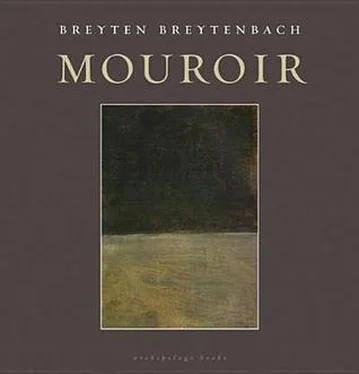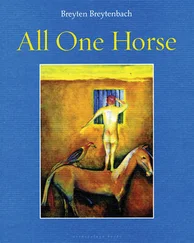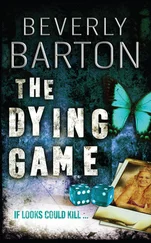And all died happily ever after.
The Hat Which Didn’t Make It to Heaven
A man suffering from premature ejaculation may
not care to be compared to a rapid hamburger eater.
In the big city there’s a small street. In the small street there’s an old house. In the old house there are five storeys and a staircase. Three of the storeys are old and two are dated later — that is to say, the one new floor was a stable originally and the other once upon a time a loft. With time they were transformed. Each storey has several rooms large and small. On the fifth floor in a tiny room there’s an old man with a flourishing moustache all frayed like a bootlace from too much soup and snuff. The old man flexes his knees as they are becoming very stiff, and worries his moustache from side to side. Then he dons his trousers the way one would mount a horse. Before the mirror on the wall he combs his teeth before plopping them into his mouth. Thereupon he knots his cravat and puts on his waistcoat and inserts two fingers in the waistcoat pocket. In the waistcoat pocket, on a chain, he has a flattish round metal box in which he saves all his remaining time. The little docket has a glass lid so that he may check whether that time is still alive. If he doesn’t consume it all, he believes, he won’t be able to die. That’s why it must be kept alive, because dead time can poison you time and time again. Only then does the old man place the bowler on his pate and exits to stamp down a creakiness in the staircase. The old man goes down the stairwell from the fifth étage to the fourth creak-creak-creak ten times creak, and from the fourth to the third creak-creak-creak another ten. Before the door on the third landing he stops. First he removes the bowler from his bald head and places it on the floor by the door. Then he takes his handkerchief from the pocket of his trousers and wipes his hands and replaces the handkerchief and clasps the one hand with the other. He stoops forward slightly, bends his knees a little, props his hands on his thighs in the trouser legs and puts an eye to the keyhole of the door on the third landing. Through the keyhole the old man looks into a room filled with blue light. On the floor of the room there’s a carpet. On the carpet a sideboard and a bed. On the sideboard are placed three glass bowls. The first is filled with feathers, the second with nails, the third is full of dust. On the bed lies a woman. The woman is dead. There is lipstick on her lips and also a few flies searching for the sweet breath. The woman’s dress is bunched up to just above the hips. Heap hop hip her. Her legs are thick and grey with purple stains. Between the legs, high, there’s a wee beard. The old man looks through the keyhole. The old man hems and haws and shifts his dull eye away from the keyhole so that he may put his mouth there. When the old man whispers his whiskers tremble like the shiny laces of a shoe full of corns. Huffapuff, the old man whispers; huffapuff huffapuff. Madam Mafarsikos, it’s me again. It is I, Madam Mafarsikos. Huffapuff, Madam. What shall I do? Look, I have a name and a conscience and a soul and a mind and a spirit and a ba and a ka all birds of very different feathers. What shall I do with the parts? Huffapuff, Madam Mafarsikos. And what about the pitter-patter and footfalls and raindrops and the ear socket on the chain from my heart in the waistcoat pocket? So whispers the old man and then he takes away his mouth from the keyhole to replace it with an eye to look and see if there be any perceptible reaction. But the old man is very old and most stiff and quite slow and awkward since a long time already. However thin he may pleat the lips around the words and even though he uses a how’s-that hand to back up his eye against the light by the keyhole — he is always just too late to observe any results. When his knees start to ache he dries his hands on the handkerchief again, replaces the bowler hat on his naked pate, and treads creak-creak-creak further along the pilgrimage of his ruminations. Every day he comes to wait and watch by the keyhole. Sometimes he also wipes the white keenness of his mouth on the handkerchief. He says huffapuff, Madam Mafarsikos. What must I do and what can I not retain? Anubis, Madam Mafarsikos. Anubis and Isis and Hathor and Min and Set and Amon-Re and Osiris and Khepri dung beetle. Aron and Horus, madam. Geb and Nut and Shu and Thoth and Ptah? Tueris and Ma-at and my loyal Bess. Oh, cemeteries of the hyenas. O devourer of shadows and plunderer of intestines and breaker of bones. Huffapuff, Madam Mafarsikos — huffapuff fuffanuff hemacough! Is the creaking ultimately in the stairs or in my shoe? But I am without blame. . The third day he saw that the little beard was growing. The sixth day he saw that the little beard had grown long. On the ninth day he realized that eye and tongue would not suffice, for how would he hear the answer? His whole strategy needed to be reconceived from scratch. By the fourteenth day he attempts to whisper through his yellow ear. Oboepoof, Dama Falukamorf. On the seventeenth day the beard is curlicuing over the carpet. The twenty-first day the bowls on the sideboard are swapped around. Comes the twenty-ninth day and the old man knows he is too slow. Searching for answers and observing cause delays: contact is impediment; growth is interception. By the thirty-fifth day the beard reaches the door, a small squadron of dark blood serpentining in the blue. Day thirty-six, the old man’s knees are most reluctant and sore. On the thirty-seventh day he opens the door with extreme circumspection. He swallows the keyhole. He wipes the handkerchief on his hands. Down he goes on creaking knees and takes the wee beard in his fingers. Tough stuff, Madam Komafarsi. Lovingly with care he grips the beard and pushes aside his shoelace-shined soup-shined snuff-shined mouth-bemoaning moustache with a shivering sleeve. And the old man starts to climb climb climb climb. He feels the tick-tocket throbbing in the tin in his pocket.
But he forgets the bowler hat on the landing.
In those days many of the inhabitants had already deserted the city. Not a soul dared to be seen along the majestic boulevards which swept through the centre of town. The trees bordering these, accumulating dust, looked as if they had been left behind. Doors and windows were bolted. Balconies overlooking courtyards or street-corners were sightless and the rooms behind them empty too. It hadn’t rained for a long time — the daily sky of an indecipherable metallic blue with the organization of stars present and understood though unseen, and at night the moon a soft myopic eye without eyelids — but slime and mud nevertheless oozed everywhere. Some said it must be a vast underground lake forcing itself to the surface through every shaft and cellar and foundation and grave. Others held the cause to be burst mains and cracked sewers. Sabotaged perhaps. It was a time of subterranean modifications. Every pipe jutting from the spongy earth was in reality a periscope, each faucet a listening device. Those who had stayed behind were either too foolhardy or idealistic to leave (and that amounted to the same), or else infirm, soft-minded, left in the lurch without transportation, poor, browbeaten, suicidal, stateless. Some were petty criminals misreading the signs.
Food was practically impossible to come by. In the mornings I sat in my cell scribbling my fibbles, the bits I could remember as if from a lost and aromatic night — about Enfesj and Tuchverderber and Fagotin and Prisoner Hawk and Gregorian Samosa and Savopopo and my wife, Sweetime. Into which night had she disappeared? Outside I could hear the rats rustling. One often saw them, streaked with mud, their unbuttoned eyes, the fangs shimmering. They were everywhere. They were also indestructible. And the range of sounds emitted — the hisses, squawks, sneers, puffs, grunts, screeches, threats! The city was devouring its own innards. The rats, I often imagined, were now usurping the roles of all other animals. Some even walked the dusty trees like birds. If one could only tame them, or cook them adequately. But the power had long since been cut. In fact, we were warned not to attempt using any electric appliances, and there was no timber dry enough for kindling. In the afternoons I took my grandfather to find something to eat, some sustenance, anything to survive on. He was very old and very weak and quite blind. But he’d insist on wearing his spectacles and walking — which meant being walked — as if he could still separate shapes and shades. By wearing glasses he thought people would surmise his eyes still functioned. I took him by the elbow and led him through the alleys of unfrequented sectors of the town. It wouldn’t do to be observed anywhere along the dead arteries. We squelched through the mud, my grandfather clutching (pathetically) his sheaf of papers. For, as he used to joke bitterly, we are a line of compulsive scribblers. He wore a waistcoat and a shirt no longer very white, a tie oily with age. We trudged over sticky or slippery surfaces, passing by mouldy hedges, low vegetation already damp as if covered by the juice of the spurge, discoloured façades with cracks widening every day. Working our way secretly to the stadium of grey concrete. In more affluent days, days of pomp and pretence, it was known as the Sport Palace. Now it was merely a huge arena reeking of rot and urine and deceased athletes. But at least it still sported underground spaces resistant to the seeping liquids although greenish fungi splotched the walls. And here the stay-behinds could assemble without being seen. Here too some rations were still to be had. Not much. Doughy bread with a white beard. And grey chunks of horsemeat. The supplies, some averred, came to us (or were left to us) by the grace of the Withdrawn Authorities. And they abjured us not to criticize the set-up for reasons of communal security. Also: if you pretended not to see the food it just might not disappear.
Читать дальше












